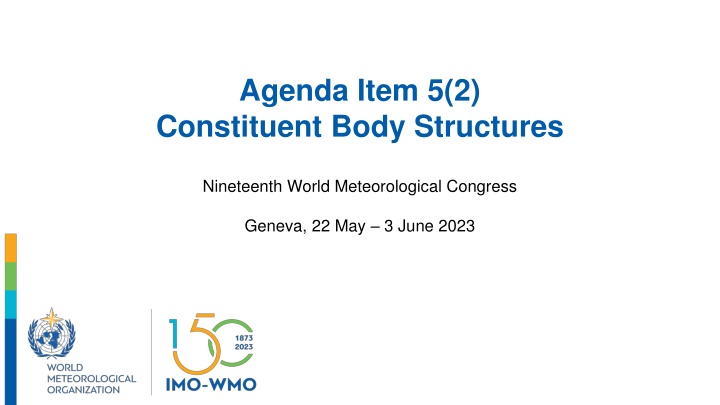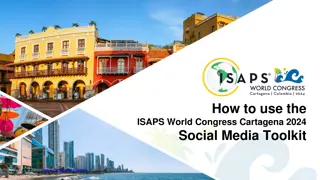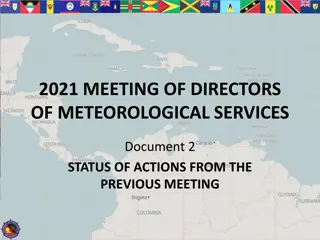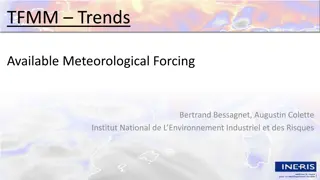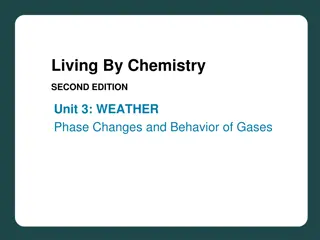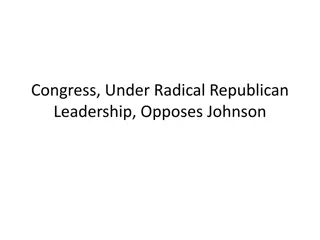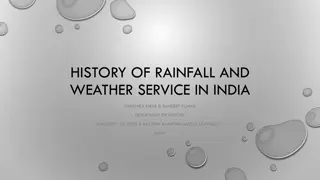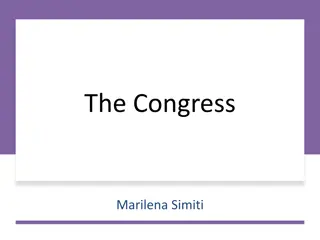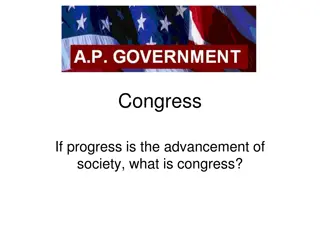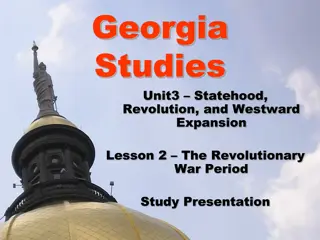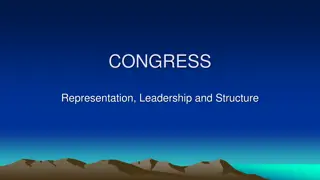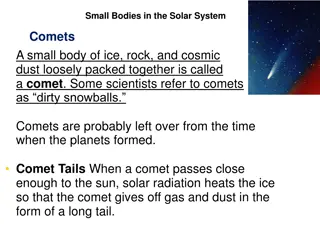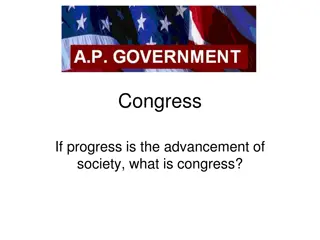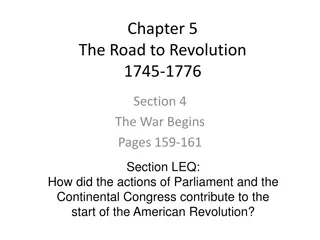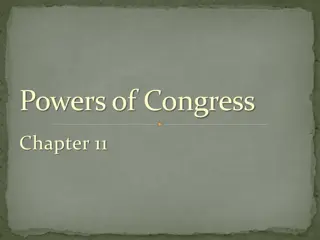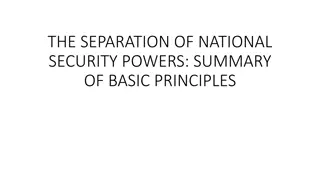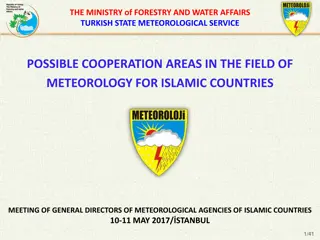Evolution of Constituent Bodies in World Meteorological Congress
The evolution of constituent bodies in the World Meteorological Congress from 1951 to 2019 highlights key structural changes, reviews, repeated proposals, and the 2019 governance reform as a significant event. The continuous process of improvement aims to enhance coordination, management, planning, and addressing crucial questions for the effective functioning of technical commissions and bodies within the World Meteorological Organization.
Uploaded on Oct 10, 2024 | 2 Views
Download Presentation

Please find below an Image/Link to download the presentation.
The content on the website is provided AS IS for your information and personal use only. It may not be sold, licensed, or shared on other websites without obtaining consent from the author.If you encounter any issues during the download, it is possible that the publisher has removed the file from their server.
You are allowed to download the files provided on this website for personal or commercial use, subject to the condition that they are used lawfully. All files are the property of their respective owners.
The content on the website is provided AS IS for your information and personal use only. It may not be sold, licensed, or shared on other websites without obtaining consent from the author.
E N D
Presentation Transcript
Agenda Item 5(2) Constituent Body Structures Nineteenth World Meteorological Congress Geneva, 22 May 3 June 2023
Reforming the constituent bodies a journey from 1951 to 2019
Technical commissions: a century-long continuity Key structural changes: Commission for Bibliography and Publications terminated in 1963; Commission for Hydrology established in 1963; Commission for Marine Meteorology subsumed in the Joint WMO- IOC Technical Commission for Oceanography and Marine Meteorology in 1999 3
Many reviews and a repeated proposal: 3(+1) commissions Cg-I (1951) Canadian proposal Cg-VI (1971) EC Panel of Experts on the Structure and Functioning of WMO (option 3) Cg-IX (1983) EC Panel of Experts for the Review of the Scientific and Technical Structure of WMO (option (g)) Cg-XIV (2003) EC Task Team on (Reviewing) the WMO Structure Cg-18 (2019) EC Working Group on Strategic and Operating Planning Commission for Synoptic Meteorology Commission on Meteorological Operations Commission for Basic Systems CBS + CIMO Infrastructure Commission Commission for Applied Meteorology Commission on Meteorological Services Commission for Applications Public Weather Services + CAeM + CAgM + CMM + application parts of CCL Services Commission Commission for Atmospheric Physics Commission on Atmospheric Sciences Commission for Research (and training) CAS + scientific parts of CCl Research Board (non-intergovernmental) Commission on Hydrometeorology Commission for Hydrology Commission for Hydrology 4
The 2019 governance reform: a watershed event within a continuous process of improvement
Questions requiring continued attention Incorporation of Members priorities in planning processes Prior assessment of risk and impact of new standards for Members Participation of all Members in technical bodies and activities Distinct and complementary roles of the different bodies Keep the consistency of the regulatory and procedural framework A key point: coordinationof the scientific and technical programme (including the work programmes of technical commissions and regional associations) Executive Council s coordinating and management role: a. planning, programme design and budget b. scientific and technical coordination, implementation and monitoring c. legal, regulatory and procedural matters 6
The system of bodies dealing with technical and scientific matters Responsibilities and interplays
Constituent bodies and additional bodies: programme matters C4(a)(1) Congress C14(b) 23(a) FR7(3) Approval of programme and budget C8(d) Approval of Technical Regulations GR154(2) Approval of scientific and technical programmes C Convention GR General Regulations FR Financial Regulations C8(h) Financial Advisory Committee Advice on financial matters and the affordability, sustainability and implementation of the results- based budget C4(a)(2) Executive Council Including through subsidiary bodies 14 Coordination of programmes C14(b) Recommendations on draft programme and budget FR7(3) Biennial budget and appropriations for the approved programme C14(c) Consideration of and action on resolutions and recommendations of regional associations and technical commissions C14(f) Guidance on the work programmes of regional associations and technical commissions C4(a)(4) Technical Commissions C19 Study and make recommendations GR III Implementation and evaluation of technical and scientific programmes C4(a)(3) Regional Associations GR II Coordination and organization of Members activities Requirements and impediments of Members with regard to programme and activities C8(h) Research Board Research priorities and coordination of research programmes C8(h) Additional bodies Scientific Advisory Panel: independent scientific advice Joint WMO-IOC Collaborative Board: coordination with partner organization WMO-UNEP Intergovernmental Panel on Climate Change: assessing the science related to climate change C4(a)(5) Secretariat C14(b) Draft programme and budget GR 154(2) Daily programme management under the guidance of the Executive Council and in close collaboration with the technical commissions Internal Oversight Office FR13.7 Independent verification of [ ] operational activities, including programme evaluation, monitoring mechanisms [ ] 8
Confirming the existing constituent bodies and additional bodies Draft Resolution 5(2)/1 (Cg-19) WMO technical commissions and additional bodies for the nineteenth financial period THE WORLD METEOROLOGICAL CONGRESS, Decides: 1) To continue the two technical commissions established by the Eighteenth Congress, with amended terms of references: (a) INFCOM and (b) SERCOM 2) To continue the additional bodies established or endorsed by Congress: (a) Research Board, with amended terms of reference; (b) Scientific Advisory Panel; (c) Joint WMO- IOC Collaborative Board; (d) Financial Advisory Committee, with amended terms of reference; and (e) Intergovernmental Panel on Climate Change The regional associations play an irreplaceable role in the identification of the requirements and impediments of their Members about the programme and the technical and scientific activities of the Organization The technical commissions and additional bodies are supplemented by the committees and panels set up by the Executive Council 9
The role of the Executive Council Coordination of the scientific and technical programme
EC: the executive body of the Organization with a complementary role on scientific and technical matters, and regional aspects FP-1 1952-55 FP-2 1956-59 FP-3 1960-63 FP-4 1964-67 FP-5 1968-71 FP-6 1972-75 FP-7 1976-79 FP-8 1980-83 FP-9 1984-87 FP-10 1988-91 FP-11 1992-95 FP-12 1996-99 FP-13 2000-03 FP-14 2004-07 FP-15 2008-11 FP-16 2012-15 FP-17 2016-19 FP-18 2020-23 Cg-19 EC-77 PAC(1) PAC PROGRAMME, TECHNICAL MATTERS ANDBUDGET AC-Programme WG-LTP(2) WG-SOP(1) TCC(1) TCC Committees on programme and budget FINANCEAND ADMINISTRATION FINAC(1) FINAC AC-Admin. and fin. TT-Review WMO structure PoE- Review Structure of WMO PoE- Structure of WMO TF-CRRCA LEGALMATTERS, REVIEWS ANDREFORMS WG(s)-Revision of the Convention(1), Gen.Regs and ToRs of TCs TF- CRRCA TF-CBR TT-Changesto WMO Convention TF-RE OVERSIGHT AOC(2) AOC AC-TA(1) C-TCQ WG-CD(1) PoE-CD CAPACITYDEVELOPMENT CDP CDP PoE-ETR(7) CRYOSPHERE P(H)ORS PHORS WG-AM(4) CHy HYDROLOGY HCP HCP PoE-WRD AC-OH JCB JCB JWC-IGOSS JCOMM OCEANS P-MO(3) CCl IBCS CLIMATE WG-IGY(4), PoE-AZP, WG-MCD, P-HT, P-TM(2) CCP PoE-CC(2) AC-WCAD AG-CE WG-Climate TF-CD DISASTERRISKREDUCTION ANDSERVICEDELIVERY SERCOM WG-SSW WG-EER WG(s)-DRR and SD Legend: AC Advisory Committee AOC Audit and Oversight Committee AZP Arid Zone Programme CC Climate Change CCl Commission for Climatology CCP Climate Coordination Panel CDP Capacity Development Panel CE Climate and the Environment CHy Commission for Hydrology C-TCQ Committee on Technical Cooperation Questions EER Environmental Emergency Response ETR Education and Training FINAC Financial Advisory Committee HCP Hydrological Coordination Panel IBCS Intergovernmental Board on Climate Services HT Humid Tropics IGOSS Integrated Global Ocean Services System IGY International Geophysical Year JCB Joint WMO-IOC Collaborative Board JCOMM Joint WMO-IOC Commission for Oceanography and Marine Meteorology JWG Joint Working Group MCD Marine Climatological Data OH Operational Hydrology PAC Policy Advisory Committee PHORS Panel on Polar and High-mountain Observations, Research and Services PoE-CD Panel of Experts on Capacity Development PoE-ET Panel of Experts on Education and Training SERCOM Services Commission SSW Seismic Sea Waves TA Technical Assistance TCC Technical Coordination Committee TF-CBR Task Force on the Constituent Body Reform TF-CRRCA Task Force on Comprehensive Review of the WMO Regional Concept and Approaches TF-RE Task Force on Reform Evaluation TM Tropical Meteorology TT Task Team WCAD World Climate Applications and Data Programme WG-AM Working Group on Antarctic Meteorology WG-DRR Working Group on Disaster Risk Reduction WG-LTP Working Group on Long-Term Planning WG-SD Working Group on Service Delivery WG-SOP Working Group on Strategic and Operational Planning WRD Water Resources Development In red, intergovernmental bodies
Achieving further efficiencies in the interactions among bodies Draft Resolution 5(2)/1 (Cg-19) WMO technical commissions and additional bodies for the nineteenth financial period THE WORLD METEOROLOGICAL CONGRESS, Requests: 1) The Executive Council: (a) To continue reviewing the respective authorities and coordinating the relations among the constituent bodies, the additional bodies and their subsidiaries bodies, as well as the Secretariat, with regard to existing processes and mechanisms related to the technical and scientific programme of the Organization, including the identification and programmatic inclusion of Members needs and requirements; (b) To submit proposals for the twentieth financial period to Congress based on the next Strategic Plan and an external evaluation of the effectiveness and efficiency of WMO bodies; 12
Thank you wmo.int
